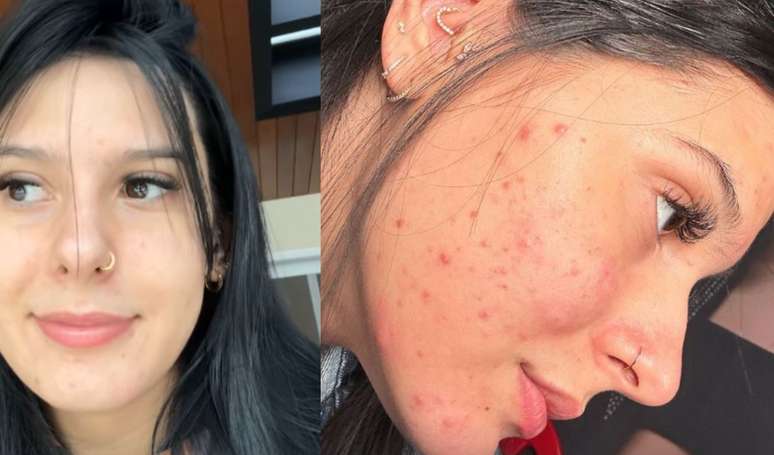You can drink your coffee guilt-free, but be aware of how it works in your body
the smell of coffee that invades the house in the morning. Coffee with colleagues in the middle of the day. The table at grandma’s house for coffee and cake. Everyone has a history with coffee: the drink is, after all, part of Brazilian culture. But how can coffee affect your health? Is there a daily limit? Who can and who can’t drink coffee?
OR coffee it has the potential to cause different effects from person to person. There are those who get stomach ache when they take too much, suffer from migraines, lose sleep or feel an almost instantaneous need to go to the bathroom. On the other hand, there are people who feel more stressed, with headaches and tired if they go a day without drinking – which opens up a debate about a possible addiction.
Advertiser Marcia Horie Moreira Fortuna, 45, can’t start the day without a cup of coffee. “But I can’t drink black coffee on an empty stomach because it hurts. I have coffee with milk, and when I get to the office I have a cup of coffee,” she says. Her habit, she says, was born about four years ago, after the death of her father. “My mother drank a lot of coffee and always put one cup for him and another for her. Once we were together and she used to put coffee for him. In the end I drank it to keep her company and I realized that it suited me more Happy.”
This happens mainly thanks to the stimulating power of caffeine, one of its main compounds. According to Juliana Gimenez Casagrande, a nutritionist studying food science at the University of São Paulo (USP), the substance directly affects receptor nerves throughout the body, but ends up having a greater impact on sensitivity points, which can range from person to person.
Coffee specialist Ensei Neto, author of the blog A coffee to share to the Stadium, explains that it is often the quality of the coffee that contributes to the discomfort. “Coffee is like wine. The price ends up reflecting the quality,” she explains. However, he argues that there is no right way to drink coffee: it can be with or without sugar, strong or weak, depending on the customer’s taste. “There is no right way to eat and drink. The rules are segregationist,” he says, who prefers to take it without sugar.
“The person adds sugar because it’s too bitter. It’s a way to compensate. It could be that the coffee is bad. But that’s a matter of personal taste,” she defends. “The important thing is to keep things simple. Eating and drinking is an act of liberation.”
Manager Carin Rocha Mauad, 45, likes to mix flavored coffee with regular coffee to vary the taste. “It doesn’t get sick and it tastes different,” she says, who only drinks coffee until 2 pm so as not to disturb sleep. “I’m a light sleeper,” she says.
Carin has a childhood relationship with coffee. “My grandmothers worked with coffee. The aroma reminds me of my childhood,” says she, who has already tried planting, roasting and grinding her own coffee at home. Unlike her children – her eldest, 18 years old, she takes him to make him available to study, but he only started due to the influence of friends who frequented Starbucks. Ensei explains that, indeed, the drink is trendy. “When we see young people consuming it, it’s because it’s fashionable. It’s not parental influence.”
Brazil is currently the 14th country that drinks the most coffee in the world and, here, the drink is second only to water in the list of most consumed liquids, according to a study carried out by the CupomValido.com.br website with data from the Organization International Coffee (OIC) and Dieese.
OR Stadium consulted experts to clarify how coffee affects your daily life and health. Watch:
How does coffee affect the human body?
The main compound in coffee is caffeine, which has a high stimulating power. This causes the drink to have some of its best-known effects, such as helping you stay more alert, willing, and focused. That is, work together so that you have a better income at work, studies and physical activities. However, this stimulating power of caffeine also helps improve physical symptoms to which the person is already sensitive.
“Caffeine penetrates receptors that we have distributed throughout the body. So when the person already has a sensitivity in the stomach, for example, they tend to produce more gastric juice and have gastritis symptoms,” explains Juliana. “Coffee doesn’t cause gastritis, it just stimulates it.”
The same is true when someone has intestinal sensitivity, for example: right after drinking coffee, they are likely to feel the need to go to the bathroom. If you suffer from migraines, a larger than usual dose of coffee can cause headaches.
In addition to caffeine, there are other substances in the drink. Among them is chlorogenic acid, which has antioxidant power. It decreases the body’s ability to store saturated fat and reduces insulin resistance, contributing to overall health and preventing the development of diseases such as diabetes in those who are already predisposed to it.
“There are also a number of vitamins and minerals that make coffee a very rich food,” Mioto says. However, the doctor reiterates that the substances and their effects change according to the type of grain and the method of preparation. “In filtered coffee, for example, oily substances tend to be retained in the filter, which is not the case in espresso – and these substances have the potential to raise cholesterol,” he says.
Is drinking coffee at night bad for you?
In general, experts recommend not drinking coffee after 6pm to avoid insomnia, as the stimulating property of caffeine makes people more awake. However, Juliana explains that coffee interference in sleep depends on genetic factors.
“Genetically, there are two main groups of caffeine metabolizers: fast and slow. And they have difficulty sleeping even hours after drinking coffee,” says the expert.
So what matters is self-analysis. If the person drinks coffee and has a problem with insomnia, it is advisable to start testing, gradually reducing the time they drink the last drink of the day until an ideal time is reached, which does not interfere with sleep. Marcia, for example, noticed that coffee kept her awake, even though she fell asleep easily. “I decided to use that to my advantage. For example, I always have coffee before I hit the road,” says she, who doesn’t drink coffee after 5pm. Her mother, Yoshiko, 76, does not experience the same effects and she also drinks before going to bed.
Does coffee help with diet?
According to Juliana, the studies conducted so far show no coffee interference in the weight loss process. What can create problems, however, is the amount and type of sugar used to sweeten the drink. “Caffeine, in fact, can bring benefits to the practice of physical exercises, which contribute to weight loss. It helps give more energy,” she says.
Does Coffee Ruin Your Teeth?
According to dental surgeon Thatyanne Brasil, coffee can cause yellowish stains on teeth, as can any other dark beverage, such as cola sodas, some teas, and juices. “If the person drinks these drinks and doesn’t clean them right away – which hardly anyone does, since we always drink a cup or two of coffee throughout the day and don’t brush our teeth right after – these pigments will stay in the tooth and, in contact with saliva, which contains calcium, they mineralize and stick to the tooth,” he says. To avoid the problem, the dentist recommends a good daily cleaning of the teeth and a visit to the dentist every six months for a professional cleaning.
Can coffee cause gastritis?
According to Juliana, coffee does not cause gastritis, but it does improve heartburn symptoms when the person already has stomach disease. In these cases it is valid to reduce its consumption or drink coffee with milk.
Does Coffee Affect Migraines?
Coffee also doesn’t cause migraines, but it can make the headache worse if it’s already a problem for the person. This usually happens when too much or more doses are taken than the person is used to in day-to-day life, but it is a temporary effect. Those who are in the habit of drinking coffee on a regular basis may also experience headaches when they stop drinking. This happens because the body gets used to that amount of caffeine, but it’s also temporary, Juliana guarantees. “I didn’t have breakfast the other day and I got a headache. I was wondering if it could be from the coffee, but it only went away after I had a cup of coffee after lunch,” says Marcia.
Does coffee make high blood pressure worse?
According to Mioto, caffeine may slightly raise blood pressure. However, if the person consumes coffee every day, he builds tolerance to the substance. “Once a person starts consuming coffee every day, he stops having high blood pressure and increases his heart rate,” he says.
Coffee addiction?
Juliana explains that, due to the caffeine, coffee can be mildly addictive. This happens because the body gets used to the level of daily stimulation acquired with the consumption of the drink and, abruptly interrupting it, an estrangement can occur. Some people may be in a bad mood, for example, or have a headache, as was the case with Administrator Carin. “My breakfast has to be plain black coffee or else I get a headache,” she says.
Does coffee make you anxious?
Due to its stimulating action, coffee can trigger anxiety symptoms if the person already lives with the disorder. However, Juliana says studies show that moderate and regular coffee consumption, which causes a person to build resistance to caffeine, can help control the problem. That’s because caffeine is linked to improving mood, and according to early studies, caffeic acid may also have anti-anxiety potential. Most of the time, Mioto points out, the person only has a worsening of the anxiety caused by coffee when he drinks excessive or higher quantities than he is used to.
Can Coffee Affect Depression?
Like anxiety, depression is a mood-related illness, which is directly affected by caffeine. At the same time, caffeic acid also has antidepressant potential, as the first studies have shown.
Source: Terra
Ben Stock is a lifestyle journalist and author at Gossipify. He writes about topics such as health, wellness, travel, food and home decor. He provides practical advice and inspiration to improve well-being, keeps readers up to date with latest lifestyle news and trends, known for his engaging writing style, in-depth analysis and unique perspectives.








